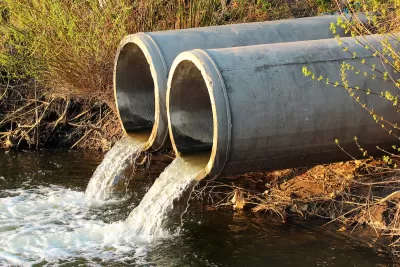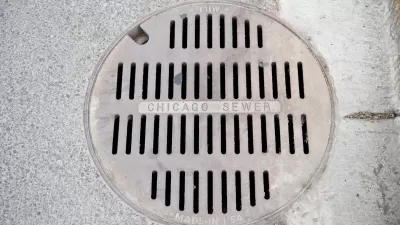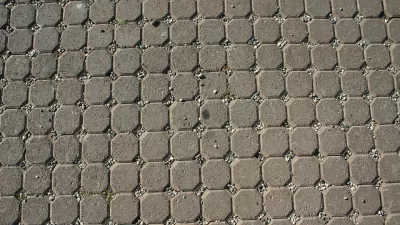Cities like Philadelphia and Boston are at higher risk of sewage overflows due to their aging sewer systems and rising sea levels.

U.S. cities with combined sewer systems risk having those systems overwhelmed during flooding, leading to the release of untreated sewage, according to an article in Eurasia Review.
Combined sewer systems collect stormwater and sewage using the same pipes, discharging their contents at wastewater treatment plants. “But the pipes can only convey a certain amount of flow. During wet weather events, to avoid inundating the wastewater treatment plants some portion of the flow still overflows into the natural water bodies through features known as combined sewer overflows – or CSOs.”
While cities are working to upgrade their infrastructure and limit CSOs, “As climate change brings more heavy rain and higher river levels, the problem worsens and cannot be mitigated with conventional approaches to stormwater management.”
A group of researchers from Drexel University studying Camden, New Jersey created climate models to simulate future flooding and CSOs in the city and evaluate the effectiveness of potential interventions. Using the model, researchers found that a proposal to divert upstream stormwater away from its sewer system could help reduce CSOs. “Overall, the results suggest that increased precipitation events due to climate change will cause more combined sewer overflows. And sea level rise will make it more difficult for these systems to discharge into nearby bodies of water.”
FULL STORY: Climate Change And Sea Level Rise Pose An Acute Challenge For Cities With Combined Sewer Systems

Maui's Vacation Rental Debate Turns Ugly
Verbal attacks, misinformation campaigns and fistfights plague a high-stakes debate to convert thousands of vacation rentals into long-term housing.

Planetizen Federal Action Tracker
A weekly monitor of how Trump’s orders and actions are impacting planners and planning in America.

San Francisco Suspends Traffic Calming Amidst Record Deaths
Citing “a challenging fiscal landscape,” the city will cease the program on the heels of 42 traffic deaths, including 24 pedestrians.

Defunct Pittsburgh Power Plant to Become Residential Tower
A decommissioned steam heat plant will be redeveloped into almost 100 affordable housing units.

Trump Prompts Restructuring of Transportation Research Board in “Unprecedented Overreach”
The TRB has eliminated more than half of its committees including those focused on climate, equity, and cities.

Amtrak Rolls Out New Orleans to Alabama “Mardi Gras” Train
The new service will operate morning and evening departures between Mobile and New Orleans.
Urban Design for Planners 1: Software Tools
This six-course series explores essential urban design concepts using open source software and equips planners with the tools they need to participate fully in the urban design process.
Planning for Universal Design
Learn the tools for implementing Universal Design in planning regulations.
Heyer Gruel & Associates PA
JM Goldson LLC
Custer County Colorado
City of Camden Redevelopment Agency
City of Astoria
Transportation Research & Education Center (TREC) at Portland State University
Jefferson Parish Government
Camden Redevelopment Agency
City of Claremont





























